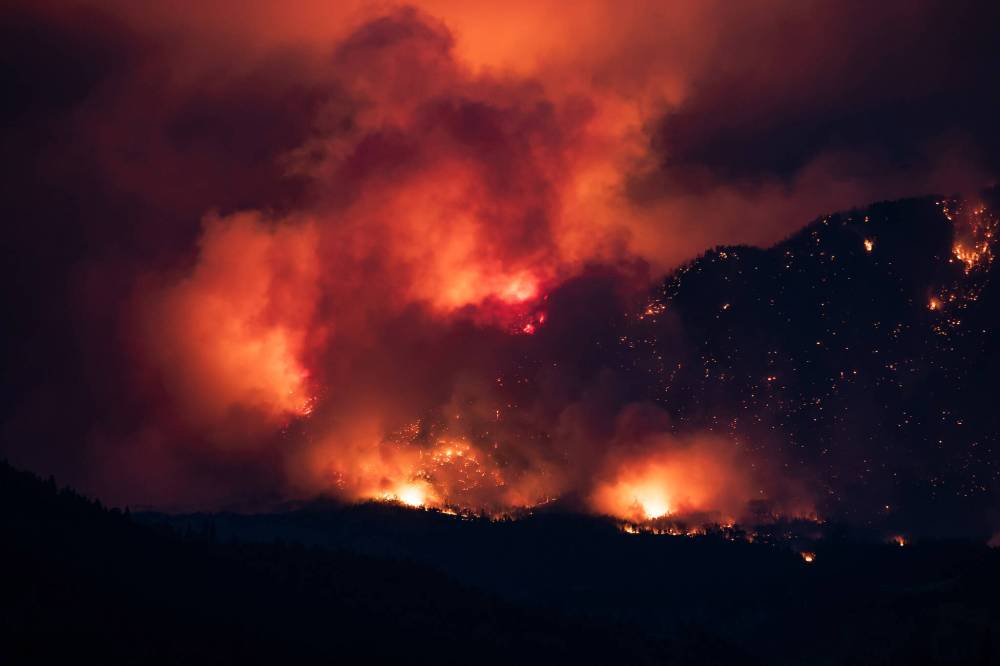Press freedom and its environmental importance
» NEELIN VIEWS
Advertisement
Read this article for free:
or
Already have an account? Log in here »
We need your support!
Local journalism needs your support!
As we navigate through unprecedented times, our journalists are working harder than ever to bring you the latest local updates to keep you safe and informed.
Now, more than ever, we need your support.
Starting at $15.99 plus taxes every four weeks you can access your Brandon Sun online and full access to all content as it appears on our website.
Subscribe Nowor call circulation directly at (204) 727-0527.
Your pledge helps to ensure we provide the news that matters most to your community!
To continue reading, please subscribe:
Add Brandon Sun access to your Free Press subscription for only an additional
$1 for the first 4 weeks*
*Your next subscription payment will increase by $1.00 and you will be charged $20.00 plus GST for four weeks. After four weeks, your payment will increase to $24.00 plus GST every four weeks.
Read unlimited articles for free today:
or
Already have an account? Log in here »
Hey there, time traveller!
This article was published 06/05/2024 (573 days ago), so information in it may no longer be current.
In 2023, 120 journalists were killed worldwide, according to the European Federation of Journalists, and more than six times that number were imprisoned arbitrarily. It is safe to say that many journalists, specifically war correspondents and journalists in authoritarian regimes, risk their lives to report the truth. This is why, in 1993, the United Nations established the date of this past Friday, May 3, as World Press Freedom Day: to protect journalistic rights and to remind governments around the world not to infringe upon the rights of journalists.
Despite the UN’s reminder, many governments still commit crimes against journalists. Over half the countries listed on Reporters Without Borders’ Press Freedom Index are categorized negatively as problematic, difficult, or very serious, with only eight countries listed in the highest tier of ‘good.’ The index is based on the number of abuses against journalists and an analysis on a questionnaire. There are many challenges journalists face. War correspondents could be targeted by soldiers, even though attacking them is illegal. Journalists could be suppressed or detained, or they could have trouble easily accessing essential information or sources if those sources are blocked by the government. The UN is attempting to prevent these barriers by establishing international laws to prevent war crimes against journalists that help prevent governments from meddling in press freedom.
The UN’s recognition of these obstacles also highlights the importance of journalism. Journalism is essential in helping people get accurate information so they can make educated decisions on current topics. The public’s view on politics is heavily influenced by the press; therefore, it is important that the press has the opportunity to provide important information, which encourages more people to vote. Furthermore, the press can also hold governments and other entities accountable for their actions, thereby pushing for a better and more sustainable society.

A wildfire is shown burning on the side of a mountain in Lytton, B.C.on July 1, 2021. École secondaire Neelin High School student Colin Shaw writes on the important role journalism plays in addressing threats to the environment. (The Canadian Press)
This brings us to this year’s theme for World Press Freedom Day: freedom of the press during the current environmental crisis. The UN recognizes the many struggles journalists face in trying to obtain information on a variety of different topics regarding the current environmental condition. Some of these challenges include finding data on illegal mining, pollution, deforestation and animal trafficking. It is crucial that these topics are reported on to enlighten the public on current events regarding the environment. Moreover, it is also extremely important to fight disinformation on these topics that hinders progress and is orchestrated by corporations or countries hoping to continue their immoral practices by skewing public opinion. In order to make certain that the press can report on the environment, it is essential that journalists have the liberty to access scientific sources.
On the World Press Freedom Index, Canada placed 15th in 2023, which is high and considered satisfactory by Reporters Without Borders, the second highest tier. However, on the Reporters Without Borders website, the organization comments that despite valuing the freedom of the press, there is a lack of coverage concerning Indigenous peoples and their rights. This comment is extended further in the context of this year’s theme for World Press Freedom Day, the environment and the climate crisis. Indigenous people may face environmental issues such as having access to clean water, or being displaced as a result of wildfires. It is essential that Canadian sources report on these topics so that the broader public is aware and can hold the government accountable if they are not doing enough.
But what can you do in the face of press freedom in the context of climate change? One thing is for certain: you can verify your news sources to ensure that you have the most up-to-date information from a reliable source, so you have all the facts to make a decision. Double check news that you read online as it could be false or missing key context. You can also find media bias charts to observe the political biases of news organizations. As for climate change, make sure the products you buy are naturally sourced or from a corporation that you know isn’t contributing massively to the problem.
» Colin Shaw is a Grade 10 student at École secondaire Neelin High School.
